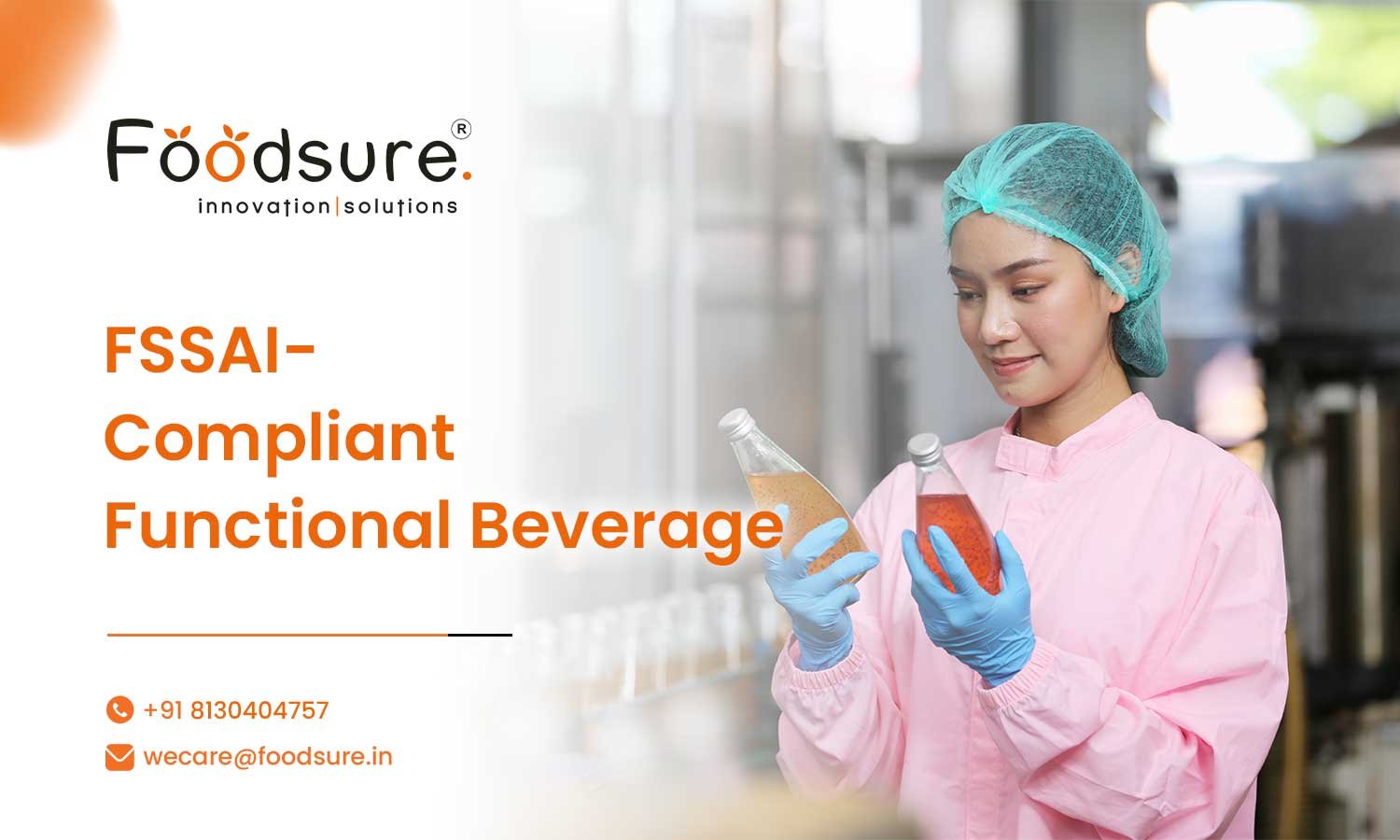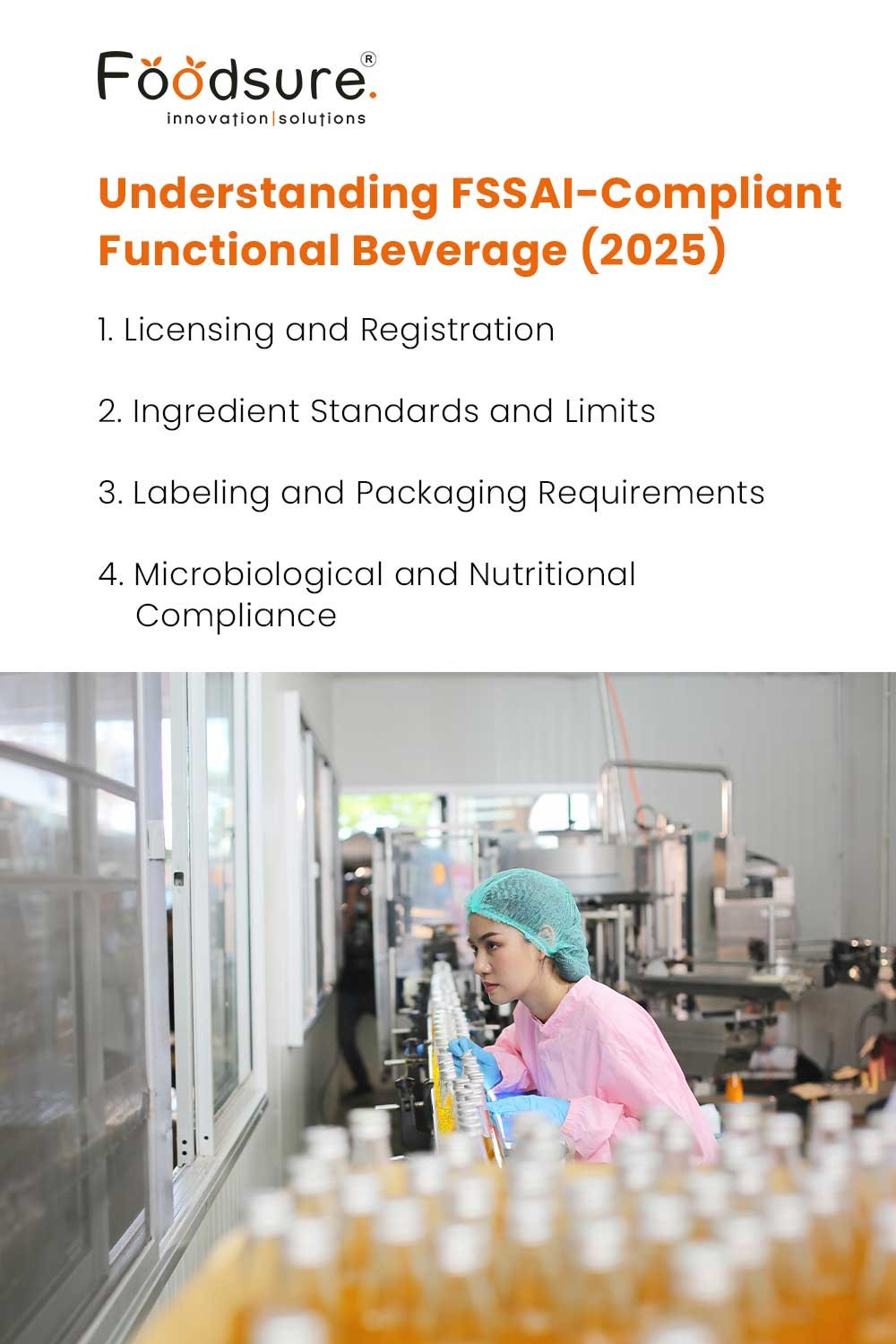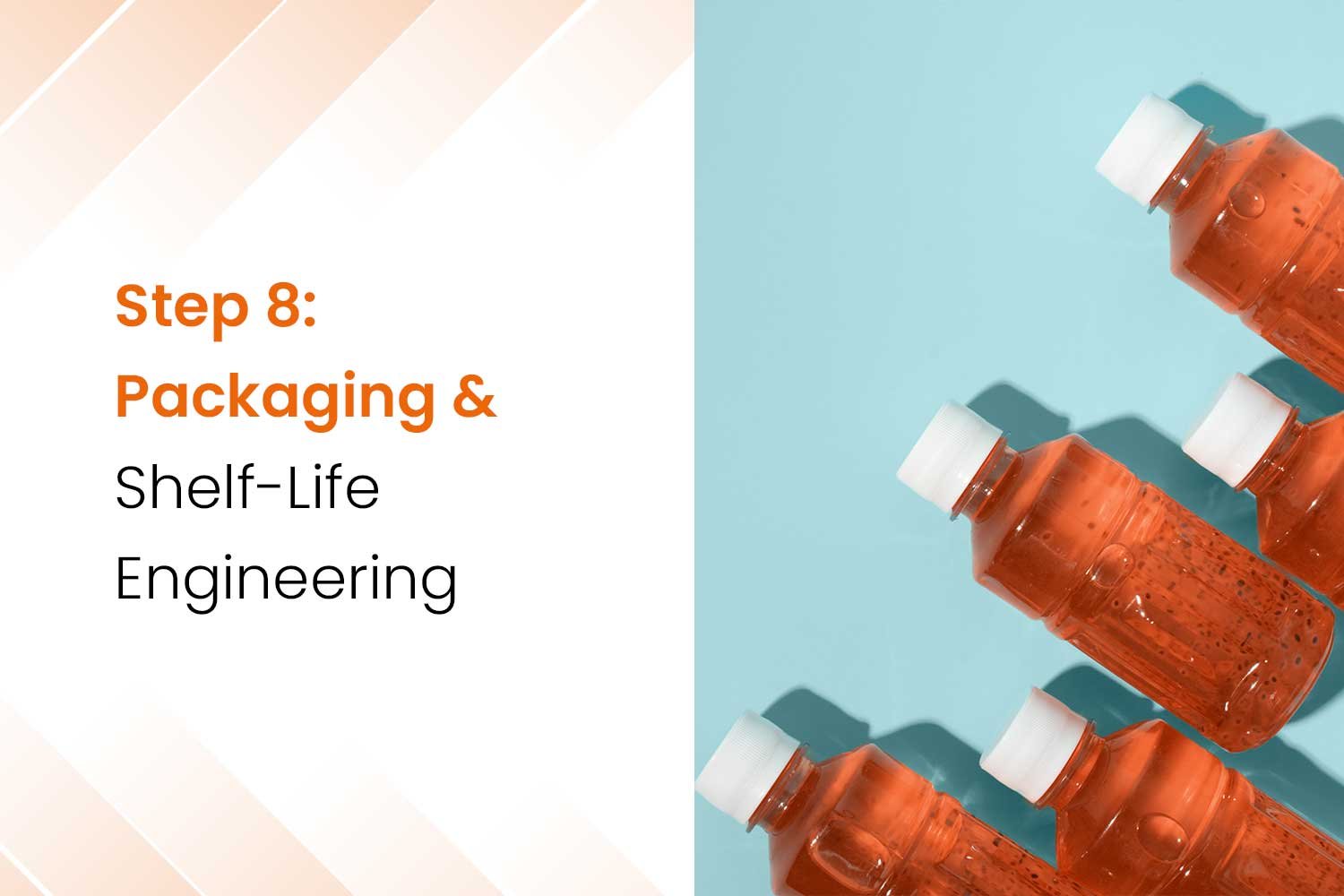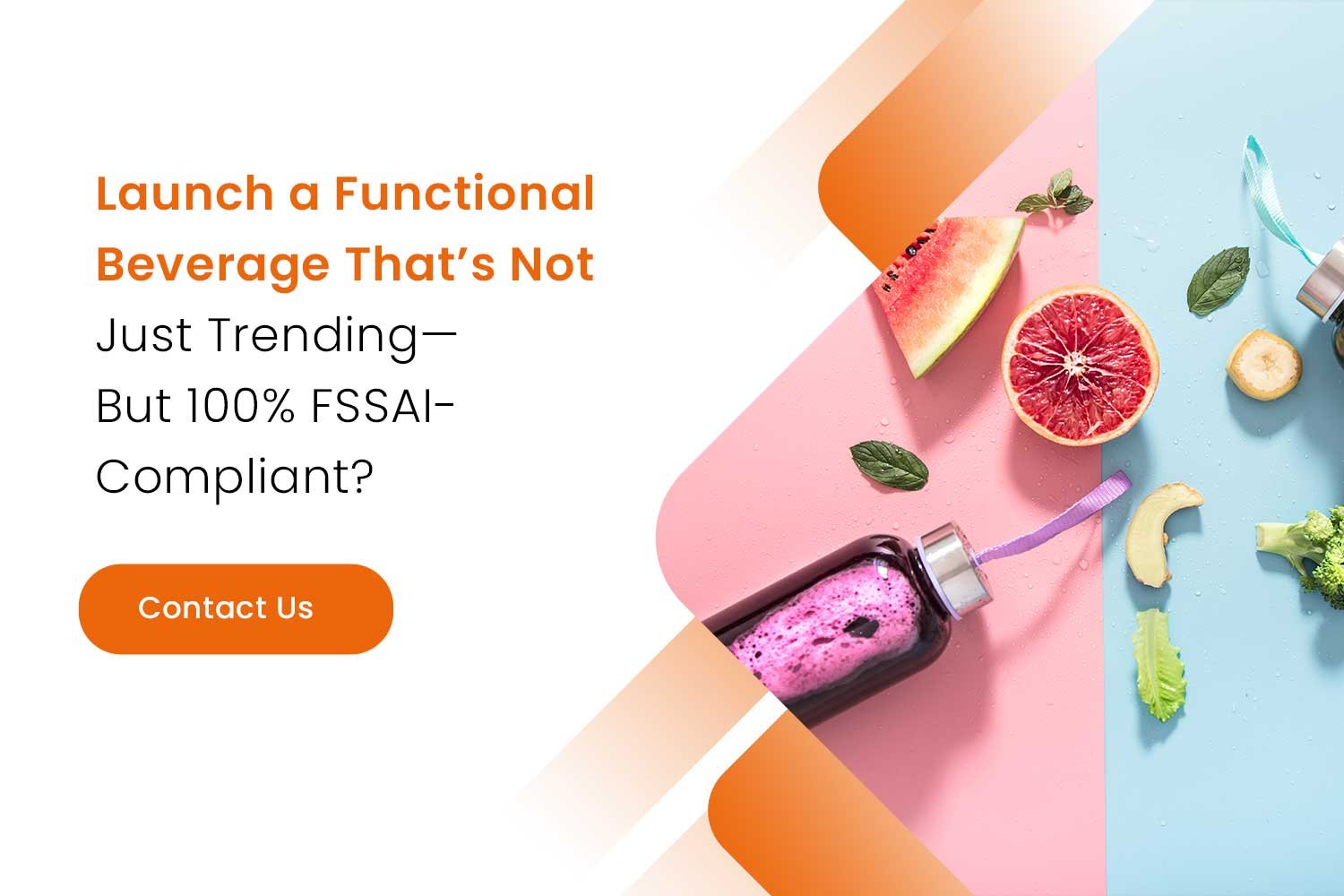Is your functional beverage idea built to last, or just one FSSAI violation away from a shutdown? In today’s fast-moving health market, it’s not enough for your drink to taste great or carry a trending ingredient. If it isn’t FSSAI-compliant, scientifically backed, and labeled right from day one, your product could be off the shelves before it even takes off.
In a post-pandemic world where health claims are scrutinized and consumer safety is paramount, your beverage needs more than a good taste and an active ingredient. It needs to be legally compliant, scientifically backed, and sensory-optimized. This guide will walk you through the end-to-end process of how to develop an FSSAI-compliant functional beverage in India, blending science, market trends, regulatory intelligence, and the list goes on.
Market Landscape: Why Functional Beverages Are Booming
India’s functional beverage market is at its peak, growing ike a star, projected to expand at over 10% CAGR through 2030. Want to know why? Let’s get into this.
- Increasing urban health consciousness, people are now more caring about their health.
- Growth in sports and performance nutrition
- Rise in preventive healthcare awareness, making them more aware.
- E-commerce channels promoting D2C health brands.
Popular sub-categories include:
- Immunity boosters (e.g., Vitamin C drinks).
- Digestive aids (e.g., Kombucha, Prebiotic Water).
- Energy drinks and natural nootropics.
- Adaptogen-rich ayurvedic RTDs.
Is Your Functional Beverage FSSAI Ready?
Understanding FSSAI-Compliant Functional Beverage (2025)
If you are a brand looking for FSSAI-compliant functional beverages, you need to know about its regulatory framework. FSSAI governs the safety, labeling, and composition standards for all food and beverage products in India, including functional beverages.
Here are the key regulations for developing an FSSAI-compliant functional beverage:
1. Licensing and Registration
- Any food business operator (FBO) manufacturing functional beverages must have an FSSAI license before production and sale.
- The license must follow hygiene, safety, and quality standards.
2. Ingredient Standards and Limits
- Caffeine: For caffeinated beverages and energy drinks, caffeine content must be between 145 mg/L (minimum) and 300 mg/L (maximum). Any product exceeding 145 mg/L must declare caffeine content clearly on the label with a “High Caffeine” warning.
- Sweeteners and Additives: Only FSSAI-approved sweeteners (e.g., aspartame, neotame) and additives are permitted within specified limits.
- Vitamins and Amino Acids: Vitamins B1, B2, B3, B6, B12, and amino acids like taurine and inositol are allowed but must not exceed the recommended daily allowances (RDA) per serving.
- Water Quality: Water used must meet FSSAI standards for packaged drinking water.
3. Labeling and Packaging Requirements
- Labels must include caffeine content, consumption warnings.
(e.g., “Not recommended for children, pregnant and lactating women, and caffeine-sensitive individuals”), and daily intake limits (e.g., “Do not consume more than 500 ml per day”).
- The term “energy drink” is replaced by “caffeinated beverage” on labels to avoid misleading consumers.
- Packaging materials must follow Indian standards (e.g., IS 9833 for PET bottles) and avoid harmful pigments or contaminants.
4. Microbiological and Nutritional Compliance
- Total soluble solids must not exceed 10% (m/m).
- Fruit content limits apply (e.g., lemon juice ≤5%, other fruits ≤10%)
- Nutritional claims must be substantiated and comply with FSSAI’s Food Safety and Standards (Health Supplements, Nutraceuticals, Food for Special Dietary Use, Functional Food and Novel Food) Regulations, 2016.
Steps to Develop An FSSAI-Compliant Functional Beverage
Step 1: Conceptualize Your Product With the FSSAI Regulatory Framework:
Find the target consumer needs energy, immunity, digestion, stress relief.
To avoid costly delays and rejections, you must align your formulation from day one with FSSAI’s specific standards. Relevant regulations include:
- FSSAI (Health Supplements, Nutraceuticals, Food for Special Dietary Use, Functional Foods) Regulations, 2016.
- FSSAI (Food Product Standards & Food Additives) Regulations, 2011 – Schedule IV
- FSSAI (Labelling & Display) Regulations, 2020.
- FSSAI (Advertising & Claims) Regulations, 2018.
Each regulation covers important aspects:
- Uses of Ingredient and maximum limits
- Additive and preservative allowances check
- Labelling declarations
- Health claim substantiation
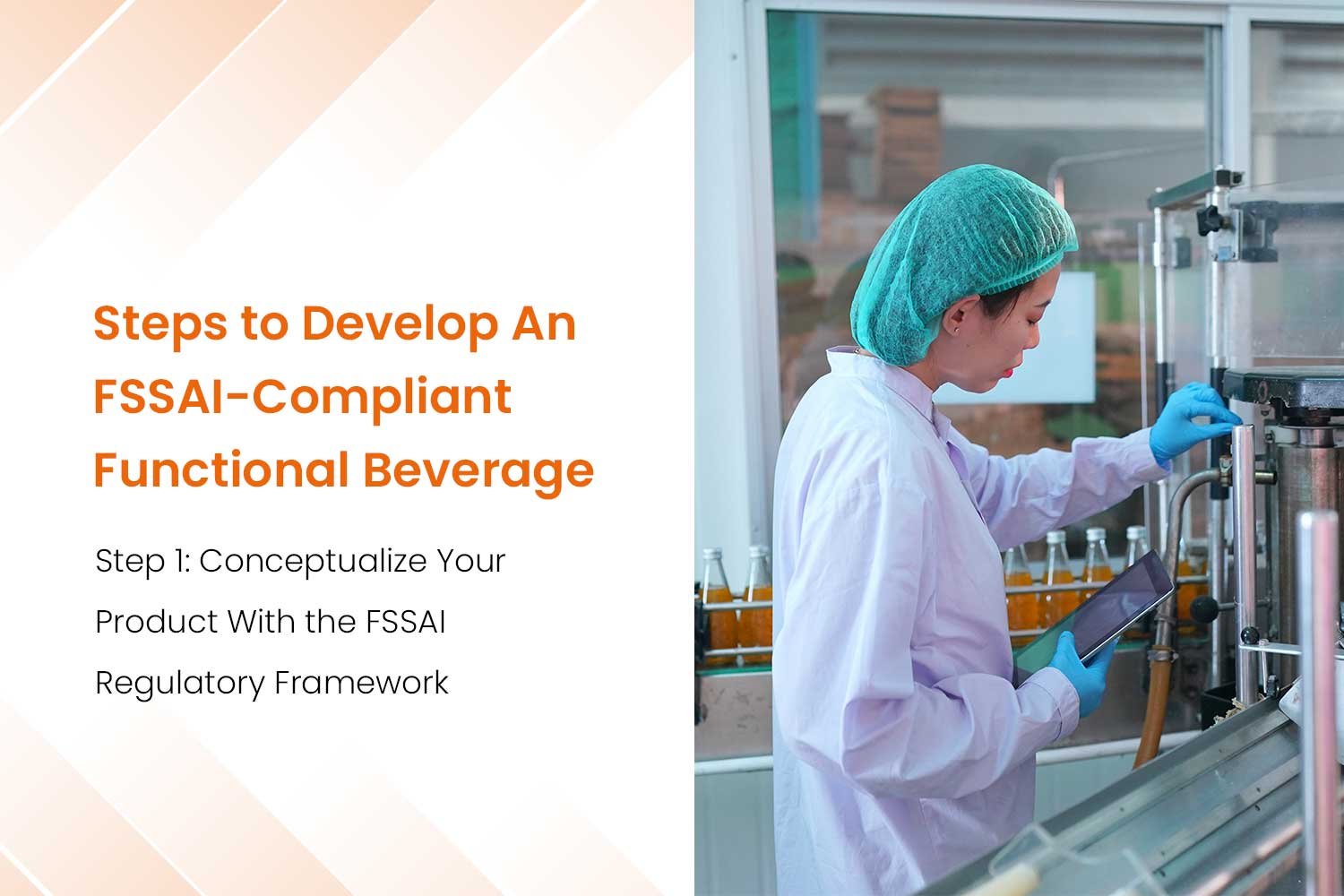
Step 2: Choose Scientifically Backed Functional Ingredients
A functional beverage must provide health benefits to the customers. Use only FSSAI-approved ingredients from its published list. This will help you to get the best response from your target audience.
| Benefit | Ingredients | Scientific Support |
| Immunity | Zinc, Vitamin C, Ashwagandha | Peer-reviewed studies on immune modulation |
| Energy | Caffeine (Natural/Green Tea), B-Vitamins | Clinical research on cognitive & physical alertness |
| Gut Health | Probiotics (Lactobacillus), Prebiotics (Inulin) | WHO-verified strains with digestive benefits |
| Stress & Cognition | L-Theanine, Brahmi, Bacopa | Human trials supporting focus and anxiety reduction |
Step 3: Product Categorization
Proper classification dictates how your product is regulated. Choose the right beverage consultant, and they will provide you with the right guidance for the best options possible.
| Category | Examples | Regulatory Coverage |
| Caffeinated Beverage | Energy drinks | Schedule IV (Max 300mg/L) |
| Health Supplement | Herbal RTDs | FSS (Nutra) 2016 |
| Proprietary Food | Kombucha + collagen | Must file FSSAI prior approval |
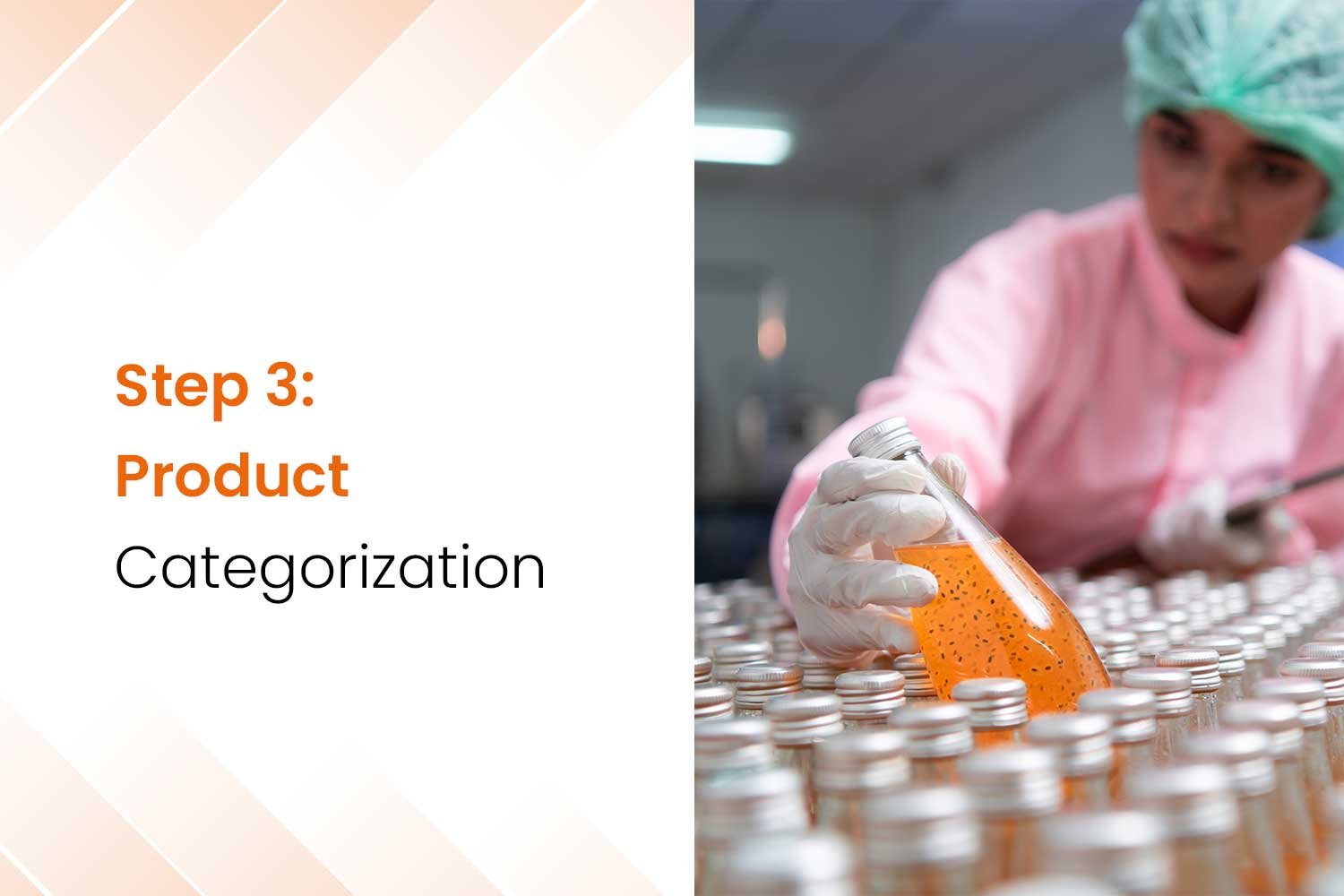
Step 4: Make Sure Of Scientific Claim Substantiation
The FSSAI Advertising & Claims Regulation (2018) mandates:
- Functional claims must be backed by research.
- “Boosts immunity” or “improves focus” requires validation.
- Proprietary data, published papers, or meta-analyses must support your label.
Not Allowed:
- Vague or misleading language like “Detox” or “Heals gut”
- Claims implying disease cure

Step 5: Design an FSSAI-Compliant Functional Beverage Label
FSSAI’s 2020 labelling norms are very strict, especially for beverages. Every brand should follow all the norms for better performance and customer health. Every functional product must declare:
- “HEALTH SUPPLEMENT” or “CAFFEINATED BEVERAGE” prominently
- Exact mg per serving of each active ingredient
- Max consumption limit per day
- Warnings for children, pregnant/lactating women
- FSSAI license number, batch ID, MRP, expiry
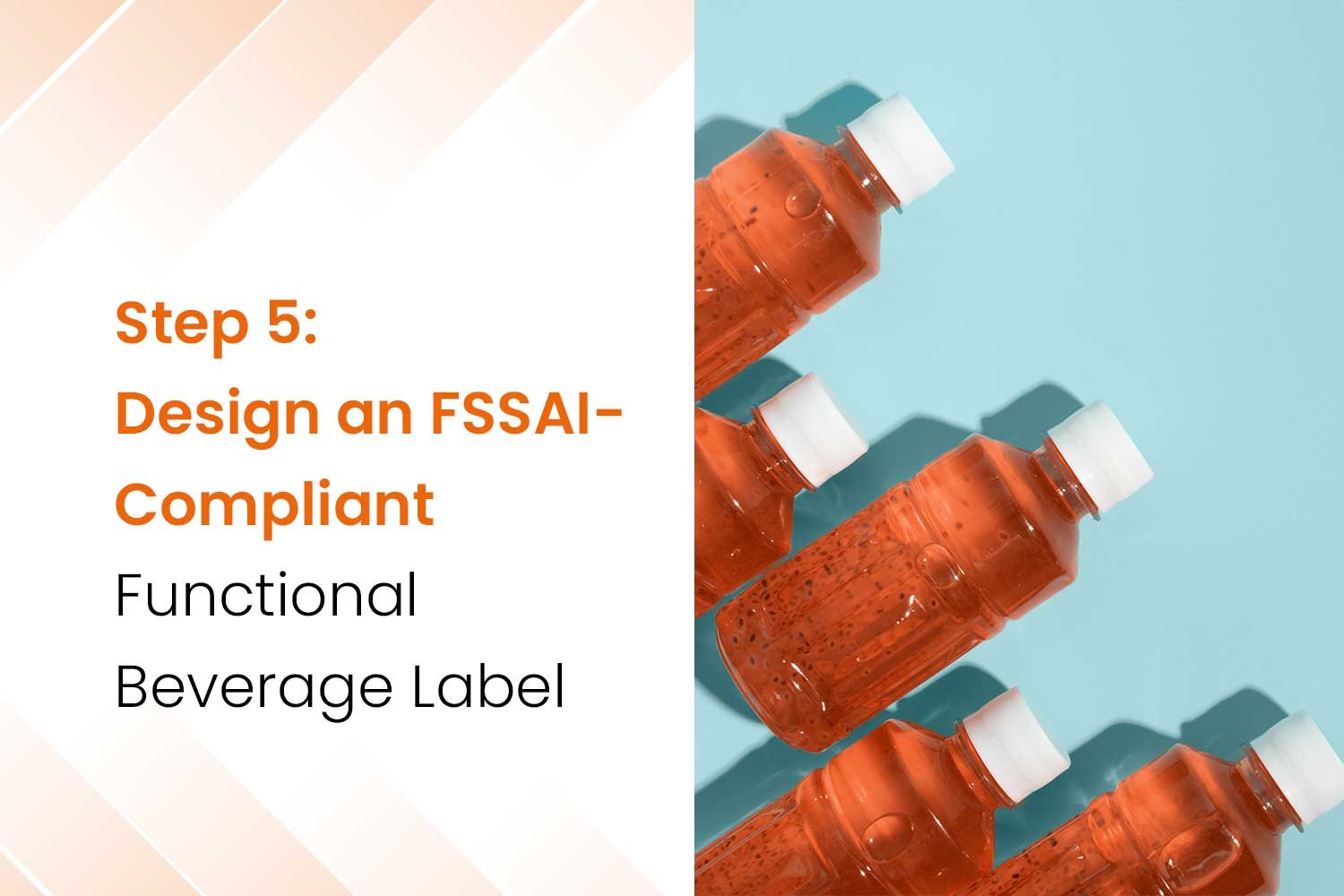
Step 6: Conduct Safety and Stability Testing
Before launch, perform complete testing to ensure:
- Microbiological safety: Free of pathogens (E. coli, Salmonella)
- Stability: Nutrient potency till shelf life
- Packaging interaction: No leaching or contamination
- TDS, pH, and preservative checks
Step 7: Functional Beverages Need Sensory Optimization Too
Most functional actives have bitter, metallic, or chalky profiles. Successful brands spend time making sure:
- Good aftertaste using natural maskers (e.g., lemon oils, vanilla esters)
- Texture balance with emulsifiers (e.g., acacia gum, pectin)
- Clear appearance using filtration for RTD teas or protein waters
Taste trials with a 10-member panel or AI-assisted sensory mapping can be amazing and game-changing.

Step 8: Packaging & Shelf-Life Engineering
Functional beverages have shelf-life challenges:
- Vitamin C degrades under light
- Probiotics die above 30°C
- Caffeine content drops in transparent PET bottles
Solutions include:
- UV-resistant bottles
- Refrigerated cold chain logistics
- Nitrogen flushing for oxygen-sensitive actives
Step 9: Documentation & Licensing
Documents required to obtain an FSSAI License:
- Form-B (FSSAI application)
- Ingredient list + formula sheet
- Proof of ownership/manufacturing address
- Label artwork sample
- Product testing report (COA)

FSSAI licensing portals:
Case Studies: Learn From Mistakes
Case 1: Energy Drink Trouble
How even a small misstep can cause lakhs. Let’s see more about it. One brand launched an energy drink with more than 145mg of caffeine in a 300ml bottle. But they forgot to clearly write “CAFFEINATED BEVERAGE” on the label — a must under FSSAI rules. So this is the time for some backlash. Just 45 days after launch, the drink was pulled off the shelves. The company ended up losing around ₹8 lakh.
Case 2: Kombucha Label Rejected
Another brand tried to sell a kombucha drink claiming it could “detox your gut.” But they didn’t have proof to back up that claim. This is not justified. FSSAI didn’t approve the label. The brand had to redesign everything and lost nearly 3 months in the process.
The Science and Innovation Behind Functional Beverages: A Quick Look
Developing an FSSAI-compliant functional beverage blend includes food science, nutrition, chemistry, and consumer insights. Let’s get more insights. Here’s what’s shaping the industry today:
- Smart Ingredient Choices
- Botanicals & Adaptogens: Ashwagandha, holy basil, and ginseng reduce stress and upgrade mental clarity.
- Nootropics: Lion’s mane and L-theanine level up the focus and calm the mind.
- Probiotics & Prebiotics: Support gut health, immunity, and mood.
- Plant Proteins: Pea, rice, and hemp proteins fuel muscle recovery and satisfy vegan needs.
- Advanced Processing in R&D Lab
- Cold-Pressed Extraction: Retains nutrients by avoiding heat. This will be helpful practice.
- Nano-Emulsification: Boosts absorption of fat-soluble nutrients like CBD and vitamins.
- Sustainable Packaging: Eco-friendly materials meet growing green demands.
- Personalized Nutrition
AI and tests now make it possible to create personalized drinks based on your DNA and gut health. This is changing how functional beverages are made—now they can be made ust for you.
How Foodsure Helps You Launch Right
We are experts in:
- R&D for functional & clean-label beverages
- Regulatory documentation & FSSAI license filing
- Scientific label writing & validation
- Lab coordination for stability & microbiological tests
- Shelf-life & sensory optimization
With 200+ functional launches and a 100% compliance track record, we help brands go from concept to compliant market launch without surprises.
Launch Your Functional Beverage with Confidence
Get FSSAI compliance, labeling, and scalable formulation support—so your beverage hits the market without delays.
100+ FSSAI-Compliant Drinks
Trusted for Clean-Label Formulation
Launch a Functional Beverage That’s Not Just Trending—But 100% FSSAI-Compliant?
Partner with Foodsure — where your drink idea becomes a science-backed, FSSAI-compliant, shelf-stable product that customers trust and retailers love.
Book Your Free Consultation Today
Contact Foodsure’s FSSAI-compliant functional beverage experts now at +91 8130404757

